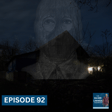Complexities of Guardianships and Dementia
00:00:00
Speaker
Yes, most definitely. But you have to be to the point where you have that insight to be able to do it. And that's why I say the guardianships for persons who are mentally ill are the hardest. And there are, you know, the ones that are really wild are people who have a mental illness.
00:00:24
Speaker
may not have been treated because the spouse was taking care of things, so to speak.
Introduction to Elizabeth McMaster
00:00:31
Speaker
The spouse is gone and now we have some dementia on top of it. So those get really hairy because I used to get into an argument with a friend of mine and he was a director of a psychiatric hospital and he said, we don't treat old people with dementia.
00:00:54
Speaker
I said, well, but there's a mental illness too. Well, they need to just go somewhere. They need to go to a nursing home.
00:01:16
Speaker
This is the Silver Linings Handbook Podcast. I'm Jason Blair. That's Elizabeth McMaster, an attorney and an advocate who focuses on areas of law that intersect with elder law, guardianship, and mental health.
00:01:31
Speaker
Elizabeth not only practices law in this area, but she has a true passion for helping people whose psychological, social, and financial well-being are negatively impacted and the legal tools that exist and can be brought to bear to improve the welfare of others.
00:01:48
Speaker
Elizabeth is the managing partner of a law firm based in Fredericksburg, Virginia that carries her name. She has more than 16 years of experience serving the northern, eastern, and Hampton Roads areas of Virginia. Elizabeth says her passion for this law is rooted in growing up as the daughter of a registered nurse.
Controversies in Elder Law
00:02:08
Speaker
Her mom, in her later part of her career, was focused on working with older patients.
00:02:14
Speaker
Elizabeth remembers visiting her mom at nursing homes and her mother asking her to sit with residents who did not get many visitors. This ignited a passion for the elderly and the disabled who are often, Elizabeth says, trampled on by others in society and at times by their own poor choices.
00:02:35
Speaker
This area of law has long been controversial because it touches on the inherent conflict between helping people and individual rights.
Conservatorship Spotlight: Britney Spears and Michael Oher
00:02:44
Speaker
Tools like conservatorship strip individuals of the right to make certain decisions.
00:02:50
Speaker
That debate was hypercharged in 2019 by pop star Britney Spears battle with her father over a years long conservatorship that she had been placed into involuntarily. Spears had been placed into it because of her struggles with bipolar disorder and several high profile, highly publicized incidents that she had.
00:03:12
Speaker
There was an enormous backlash to the management of the conservatorship and broad calls, particularly among young people, to quote-unquote free Britney. The goal of these protesters was to change laws around conservatorship. This debate often overlooked the mentally ill elderly adults
00:03:32
Speaker
struggling with cognitive decline and others who could be put in financial or physical harm's way without an appointment of a guardian or some form of protector. The debate raged in the headlines again in 2023 when a Tennessee judge ended the voluntary conservatorship between Sean and Ann Tuhe and football player Michael Orr
00:03:56
Speaker
All three of whom were the subjects of the upbeat 2009 film, The Blind Side, that Sandra Bullock starred
Elizabeth's Journey into Elder Law
00:04:04
Speaker
in. These issues show up in many other areas of law beyond conservatorships, such as mental health law, where advocates heatedly debate how easy it should be to detain people and obtain an order to involuntarily commit them to impatient care.
00:04:21
Speaker
Elizabeth is a member of the National Academy of Elder Law Attorneys and a member of the Board of Directors for the Virginia Academy of Elder Law Attorneys. Elizabeth graduated from Mary Baldwin University with a degree in history in the Catholic University of America.
00:04:39
Speaker
where she received her jurist doctorate. Today, we're going to discuss the role that conservatorship and other similar tools play in society, that tension between individual rights and protecting individuals, and what we can learn to make society a better place for those who are elderly and disabled.
00:05:14
Speaker
Elizabeth, I just want to thank you for joining. And I just wanted to mention, like, you're the first guest that we've had who is a part of the Silver Linings fireset chat, which is our Facebook group. So you're actually the first person who's been a part of that group before they were a guest and actually came onto the show. So I really appreciate you.
00:05:38
Speaker
Coming on, I really enjoyed talking to
Personal Reflections on Aging and Elder Care
00:05:41
Speaker
you. I feel like you and I really developed a bond really quickly, not just because of our love for true crime, but I think about our deep affection for people and people's well-being.
00:05:55
Speaker
I really just sort of clicked with you in that way and then in some of our conversations about the work you did it's just somebody coming from a mental health background and working with people disabilities and then.
00:06:10
Speaker
You know, with even things like my parents and aunts and uncles getting older and dealing with things, I just thought that this is like a powerful topic that people don't really understand very well. So thank you very much for coming on. Oh, absolutely. I'm happy to be here.
00:06:28
Speaker
Oh, God. We also have a shared love of true crime, right? Yes, we do. Another bonding point, yet another person that I've met through Brett Talley and Alice the Core. I do think that it's funny in life, they say,
00:06:52
Speaker
you know, friends who meet online. A lot of people will talk about how like it's not an in real life relationship or it's a parasocial relationship. But I feel like we're kind of like a part of a unique group of people who truly become friends. So I'm putting you in the friend column. I don't know whether you're putting me in the friend column, but I am putting you
00:07:16
Speaker
Absolutely. I agree with that 100%. I probably speak, you know, it could be ever social media to my podcast friends more than my actual friends. It's just one of those. And we talk about the dumbest things. So you never know what you're going to get. And for me, it's, it's funny because, you know, I'm an attorney and I don't come home and watch law and order, or I don't
00:07:44
Speaker
you know, and I don't know how I started listening to the project, the prosecutors podcast, but I did. And I loved it. And I'm like, Oh, I don't want to, you know, this is different because it's true crime. It's not what I do every day. Because you just kind of get, you know, it's your job kind of thing. You know, so you know what I'm saying, but yeah, absolutely.
00:08:11
Speaker
And that's, with True Crime, I'm not a criminal attorney. I know hardly anything about criminal law other than what I've learned through the podcast. But I've found just so many people are so passionate, be it that they're attorneys or not, and want to know the process and how civil rights come into it, juries and the whole thing. So it's really fascinating to me.
00:08:38
Speaker
Well, and I actually think like two thoughts come to mind based on what you're saying is one, I think in the prosecutor's podcast, like we have good role models for how to build a community instead of, you know, just having a bunch of listeners. But the other thing about law that's really interesting being a part of that true crime space is how many people when they're talking about sort of like they come across a lawyer,
00:09:06
Speaker
And they think lawyers know everything about every piece of law, and law is the same in all sorts of different situations, civil, criminal, and other things like that. But the reality is, law is almost like medicine, a highly specialized field. You don't want your psychiatrist doing your burn surgery.
00:09:31
Speaker
You don't want your orthopedist doing the work of your OBGYN and so it's really interesting to me too when somebody like you as a lawyer is a part of that community and people find out that you guys are lawyers and they're asking you questions about like criminal aspects and you're like, I don't know.
00:09:53
Speaker
And that's basically that's what I'll say. Somebody asked me something about criminal law or bankruptcy. I don't know. No one knows anything about bankruptcy. Yeah. And even gets weirder when you get into the administrative code, like because I went to school in D.C. and you had, you know, how the Social Security Administration runs their court system and all these different immigration court. Yes. And that's a whole other, you know,
00:10:23
Speaker
system. So it's very, um, it has to be specialized and is, and I always tell people to, it is like practicing medicine. Um, you know, back in the day you had your general practitioner of medicine, you had your general practitioner, um, attorney in town, your Atticus Finch, uh, so to speak. But these days you just can't do that because there's so much specialization in the law.
00:10:52
Speaker
One of the things that I really, I always wonder and I ask when I have lawyers on like how they originally got interested. I mean, my brother's lawyer, other people are, he had a weird path. He was interested in technology. Then he got interested in like, how do people do deals around this and became an IP lawyer? But I read on your website, I was looking at your website and I read that
00:11:18
Speaker
a big inspiration. And I felt this was really different for an attorney's website that you actually talked about what your inspiration was, but that your mother had worked as a
Emotional Challenges in Dementia Care
00:11:31
Speaker
nurse. Is that right? Yeah, she was a registered nurse. And yes, in her later career, she worked in geriatrics. Her love and her passion
00:11:43
Speaker
with being an RN, however, was in the emergency room. But once you hit a certain age, doing that type of nursing is for younger, it's basically for younger people. So she ended up going and working in nursing homes. And so that's how I came to
00:12:05
Speaker
understand and have empathy for the elderly. Also, my mom was 38 years old when she had me. Her mother was 38 years old when she had her. Out of the gate, I had a set of grandparents that were in their late 70s when I was born. I was always taught around, they were born in
00:12:34
Speaker
my mother's side, my grandparents were born in the 1800s. So it was just always being around older people and learning the value
00:12:48
Speaker
that they give and they have and the life they've lived and what they can teach. And I was a history major and so I think that part of that too and some of the things that I've frankly just loved is meeting folks who say husband and wife and I will ask them how they met and the stories are just fabulous. I had a couple one time who met in foreign language school
00:13:16
Speaker
over in, I want to say Iran, back in the day. That will tell you how long ago that was. One worked for the State Department, one worked for, I forget who.
00:13:27
Speaker
Had to be like in the fifties, right? Yeah. It was like in the forties or fifties and that's how they met. And I was just fascinating and hearing all the places they lived and especially practicing up in the Fredericksburg area. There's a lot of retired military and there's also retired government workers too.
00:13:49
Speaker
Yeah, so a lot of fascinating and you know, we always joke to how many spies have we had in our office because they're not going to tell you but you know that kind of thing as well. I work for the State Department. I work for the Department of Agriculture. I work for, yeah, sure you do.
00:14:08
Speaker
I knew that there was at least one because his stepson told me that he was pretty sure that his stepfather was doing something with the Iran-Contra thing back in the day. Yeah, the DC area can be weird like that at times. You know my mom.
00:14:28
Speaker
passed away about a week and a half ago, and she was 80. And one of the blessings, speaking of love stories, my parents' story is great too. They were both supposed to go to college at two universities, and at the last minute couldn't go to those colleges. And my mom was supposed to go to the University of Maryland. My dad was supposed to go to George Washington University.
00:14:51
Speaker
So they ended up at the opposite college. But they both ended up at the college that the other person was supposed to go to. And they were living in this apartment building in Columbia, Maryland. And I think one of their friends was trying to set him up. They went out. They hung out. They started dating. But then my dad, who was working with the different fence department, had to go off to like, I think it was Thailand, as a part of some work related to the
00:15:18
Speaker
to the Vietnam War work and he was there a couple days and he's like I miss that woman so much when I get back I'm gonna marry her and literally coming off the plane he decided to marry her but I was thinking about like one of the blessings of my mom's passing like she lived a really wonderful life and had a
00:15:38
Speaker
peaceful death but she never lost her faculties and that was always like the worry that we had and so I think about the kind of work that you're doing and a couple people pointed it out to me they said the same thing like at least you know up until her last days she was there but I think about the kind of law that you're doing
00:16:01
Speaker
It's during, at least the elder part of it, is during a part of people's lives, like for the loved ones or the person, that in many ways, the person they love has been passing away for a long period of time, and a lot of it's about protecting that person as they go through a very long transition, I sort of feel. Is that an accurate read?
00:16:28
Speaker
Yes, it is and it is probably the, you know, they always say it's the work, you know, worse for the family than this for the person because they don't know it. They might understand it first when let's say if there's Alzheimer's diagnosis, they may understand at first what's going on and that they are not remembering things that they
00:16:53
Speaker
um, can't do what they used to be able to do, such as driving. That's a big one. And, you know, and there can also be some changes in mood, um, changes in behavior, that sort of thing as well. Um, but it is hard on the family and people that love the individual because it's a slow death of, you know, and sometimes they're physically healthy and it's just the mind that has gone and they don't
00:17:21
Speaker
they'll say, this isn't my mom or this isn't my dad anymore. Yeah. And it's really difficult for the family members.
Family Dynamics and Alzheimer's
00:17:35
Speaker
And I understand I have Alzheimer's disease on both sides of my family. So I've seen it. I lost my uncle when he was only 65 years old.
00:17:46
Speaker
Oh wow, to Alzheimer's? To Alzheimer's, he had early onset, so he was diagnosed at 60 and was gone by the time he reached 65 because for some reason early onset happens, it's quicker for some reason. How old were you at that time?
00:18:06
Speaker
Oh, I would have been a teenager. So probably like 15. And, you know, his father, my grandfather died from Alzheimer's, but it wasn't Alzheimer's. It was just senility back then, had all the behaviors. I remember my mom telling me that they were going to go somewhere. And he had the car keys in his hand.
00:18:31
Speaker
and they get in the car, he's in the driver's seat and he has the car keys and he looks at my mom and says, what do I do with this? And so she said, dad, just give me the keys and I'll drive because, and I never really knew him because, you know, I was talking about behaviors. He would sit in his favorite chair and he would smoke his, he had a pipe.
00:18:59
Speaker
and he would blow smoke at my face and I thought he was the meanest man.
00:19:03
Speaker
I was only like, I think I was five when he passed away. And I would get so upset because the neighbors next door, um, they had a bunch of kids and the kids all loved him, but they knew him when he was him. And I thought, you know, well, he's mean. Why does he mean? I didn't understand. I was only five. Why is he so mean to me? And he was so nice to these kids. Um, so that was kind of my first introduction to Alzheimer's and, um,
00:19:32
Speaker
Then my uncle was next, his son. And then I had it on my father's son with my father's mother. And we didn't know she had it for a long time because she was hard of hearing and she didn't like to wear her hearing aids.
00:19:50
Speaker
Ah, so people thought she just couldn't hear. Yeah, so you would go and you'd talk to her and she'd sit there and smile and not knowing she had absolutely no idea what was going on or maybe who you even were until her behaviors with my grandfather started getting concerned and putting cold pans on the stove and turning the burners on, nothing in them.
00:20:18
Speaker
trying to get a bingo at 11 o'clock at night with her, you know, or, you know, and she ended up like, I think pummeling him with her purse one night, because she wanted to get a bingo.
Support Systems for Alzheimer's Families
00:20:30
Speaker
So, yeah, so he, he basically said that it's time to do something at that point is he couldn't, couldn't handle it anymore. So,
00:20:39
Speaker
It's, you know, and it is hard, especially when it's new to a family. So some families, they know it's, you know, great grandma had this or, you know, grandpa had this. But if it's the first time in the family, they're really at a loss for what to do.
00:20:59
Speaker
And that's when, you know, all I can do is say, well, you need to get into a support group, you need to learn about this disease, and you need to, you know, come up with a plan, so to speak. One of my craziest cases I had, I think, I told you about was
00:21:19
Speaker
My granny napping case, and we had a concern with her because she was originally from Germany. And sometimes people will revert back to their native language if they have Alzheimer's.
00:21:32
Speaker
and nobody need German. And so we were, you know, so the family was worried about, okay, what does she start speaking in German and we don't know what she's saying. And that was one of the, you know, looking back in time, now that was the least of the concerns, but that was one of them. So it was a whole learning process for them as well. One of the things that you had mentioned to me is that
00:22:00
Speaker
When you were younger, you would go with your mom to visit her patients, and she would have you sit with the people who didn't get visitors. What was that like as a teenager? Was it strange or fun? No. It was fun, actually. I would go after school.
00:22:21
Speaker
And she would send me to different rooms, and I grew up in Gettysburg, Pennsylvania, so. The most haunted town in the United States, I'm told. Apparently, but I've never saw a ghost there. But I know of, right? Right. Are you sure? Yeah, right.
00:22:41
Speaker
So one of the most interesting ladies I met was this lady, and she was the widow of one of President Eisenhower's, I think he worked for Eisenhower in the White House, and he also was with him during World War II. And so when the Eisenhower's retired to Gettysburg, they followed.
00:23:10
Speaker
So she was the only one remaining out of the four, but they spent a lot of time together. So my mom, everybody at the nursing home wanted to hear stories about Ike and Mamie, but this lady wasn't talking. My mom, she said, why don't you go see Ms. Nevins and see she'll talk to you? And so I went and she actually ended up
00:23:37
Speaker
telling me a few stories about their time with the Eisenhower's. And she gave me one of her pictures of Mamie that she had. Oh, wow. But she told me this one story I remember where I guess they were sitting outside having a cocktail and the Eisenhower's owned this farm. It's now you can go tour it. And so they were
00:24:00
Speaker
They're having a cocktail and they heard this rustling in the trees and they look up and they're photographers So paparazzi back then I guess
00:24:09
Speaker
trying to take pictures with them where they're just sitting out trying to have a drink. So, you know, it happened even back in the day. So, um, and another, another one I remember is I took German in, um, high school and my mom said, there's a lady here from, uh, originally from Germany. She's just here for rehab, but she's, you know, she doesn't have anybody to talk to. Why don't you go and see, she'll help you with your German.
00:24:39
Speaker
So I would go and talk to her and she'd help me with my German homework and she'd help me with conversational German. So that was, you know, not only was it good for them, it was educational for me. It's kind of like a metaphor for the wisdom that a lot of older people have for us. Like one of the things after my mom passed, I kept thinking about is
00:25:01
Speaker
It was flashing in my head all the great stories and lessons and family things. Not to say that there aren't some that I want to go back and ask her more questions about, but it's just more time on this earth brings an enormous amount of value. But what sparked you? How did you even find out about this kind of law and what sparked you to become a lawyer as opposed to a nurse or something else like that?
00:25:31
Speaker
Well, so the, so elder law came about basically in the early nineties, I believe it became a thing.
Origins and Evolution of Elder Law
00:25:40
Speaker
Um, so to speak. And that came about with the, uh, this group called nail on the national academy of elder law attorneys. So the small group of attorneys decided, okay, we don't just do estate planning. We don't just do powers of attorney medical directors. We have to kind of look at the whole picture.
00:25:59
Speaker
And so what are we, what are we going to call that? And it turned into elder law. Well, just so happened, I started working for an attorney in Roanoke, Virginia as a legal assistant. And at the time he was doing real estate closings, collections. How did you end up from Gettysburg and Roanoke, which is like Southwest Virginia coal country? So I went to Roanoke college in Salem, Virginia. Ah.
00:26:28
Speaker
And believe it or not, Roanoke College and Gettysburg College are sister schools. Oh, I had no idea. I had no idea. So they were both, um, I didn't either and got there and they said, Oh, where are you from this? Oh, that's our sister school. And I said, I had no idea. So, um, that's, I didn't know that sister schools existed until this moment.
00:26:50
Speaker
Yeah, apparently they were both, oh, now I can't remember, but a certain Methodist or certain religion, but they were considered to be sister schools.
00:27:02
Speaker
So I thought you know, that's that's how I ended up in Roanoke. So I just kind of stayed and I went Actually did early decision there I went and toured and the people were so nice and friendly and I just couldn't believe it It's a great part of the country. Yeah, and I just fell in love with you know that you know just the school and it was the right size for me and So so I ended up with
00:27:31
Speaker
working for this attorney. And he decided he was, I think he just got tired of doing real estate. And they were at the time they were coming up with Crespa and all this other stuff where he didn't want to have to deal with it. That's like a real estate law. Real estate thing. Um, there's certain rules you had to follow when, um, so he decided that he didn't want to, he wanted to kind of,
00:27:57
Speaker
tempered the real estate stuff and he got into elder law. And so I thought, well, that's, you know, this is interesting. And so that's how I heard of it. Otherwise, I don't think I ever would have known what it was. Yeah, that's one of the first members of the Virginia Academy of Elder Law Attorneys. So that's kind of a subsidiary of the National Academy of Elder Law Attorneys. So when I went to law school,
00:28:26
Speaker
I was going to do securities. I went and had an internship at the NASD at the time, if you remember that. Yeah, the National Securities Association. It's the Association for the Securities folks. Yeah. That was somewhere in Maryland. It was the most boring thing I ever did in my life.
00:28:53
Speaker
There's a form letter for everything. There was like no thinking involved.
00:28:57
Speaker
I couldn't create anything, although there's a letter for that. Just fill in the template, right? Because it's so highly regulated. Right. And I thought, no, I don't want to do this. So I'm like, well, we're not going to do that. But basically in law school, I was told first year by my property professor, I said, how do I pass Virginia State Bar? Because it is a hard bar to pass.
00:29:26
Speaker
And he said, what you do is you take every class for every subject that he may test on, which are like 23. Wow. And that's what I did. So I didn't really take electives that I wanted to take just because I wanted to make sure I didn't have to sit for the bar more than one time.
00:29:48
Speaker
So really like having that lawyer, then having your mother, like your passions kind of collided or your interests kind of collided in that moment? Yeah. Yeah. Just kind of, he kind of, you know, like I'm my work dad. So he just kind of became, you know, my mentor. He still is. He's still practicing to this day. And he just a couple months ago, we were both on the board of directors for the Virginia Academy of Elder Law Attorneys.
00:30:17
Speaker
And, um, he just cycled off recently, but he was always, you know, you can do it, you know, um, cause I dragged my feet about going to law school. I didn't go until I was 30 years old and he was my biggest advocate.
Intersections of Mental Health and Law
00:30:31
Speaker
He just said, Oh, you can do it. You'll be fine. And, um, he's like, I'll always be here if you need anything. And so he's the one.
00:30:40
Speaker
he and my brother-in-law at the time were the ones who bullied me into opening my own practice. I'm like, are you crazy? And all my law school friends were like, are you nuts? And I'm like, I think I am.
00:30:56
Speaker
I can definitely relate to the nuts part. Definitely the solo entrepreneur is a is a tough one and tough one to build around. But one of the things that I was thinking about thinking about that that element of like people going through dimension sort of losing yourself. It's very similar to I guess an experience that I've been through as somebody with
00:31:23
Speaker
mental health condition, I have bipolar disorder. And you know, in bipolar disorder, like, you know, there's mania where you get really high and elevated, you might think you're God or like be filled with energy. And then there's, you know, one of the things that I think a lot of people don't know that bipolar depression is
00:31:42
Speaker
slightly different than regular depression, it can get a lot deeper and darker for longer periods of time. But in those moments, like one of the interesting things about bipolar is it like really affects the hippocampus, the ability to transfer your short term memory into your long term.
00:32:02
Speaker
memory. So in addition to like the risk of psychosis and the deep depressions or the risk of psychosis and mania, that can come up, but there's lots of memory loss. And I think about, you know, I was never involuntarily hospitalized. I was on the cusp of it twice, but I was like, you know, one was after the scandal at the times. And at that point I went from like,
00:32:28
Speaker
Jason, I know it all. You guys could ask me to do anything right now. You could ask me to stand upside down and clamp symbols like a monkey with my feet, and I'll do it. So it was a humbling experience. And then there was another time where I was almost involuntarily
00:32:49
Speaker
hospitalized and it makes me think of the difficulty that exists in this world and I've been a part of other people's voluntary hospitalizations. There was this one psychiatrist that I work with who said to me, you know, there was a friend of mine who was his patient and she needed to be involuntarily hospitalized. She was like jumping over fences in the neighborhood to get away from the people who were trying to hospitalize her and he said, Mike,
00:33:19
Speaker
The point he made, which was a really good one, he's like, you try to do what you can for your friend and you try to help them. And you try and sort of like bring their wishes true. But when it's like life or death, as some of these mental health crises are,
00:33:35
Speaker
are you willing to give up your friendship to help the person? And I've noticed that with my own clients that there have been times where people have been such a danger to themselves or others and unwilling to seek treatment that we've had to push for involuntary hospitalization and it may break the relationship, it may break
00:33:58
Speaker
us apart and it's really emotional on both sides of it as somebody who's been hospitalized myself and faced the prospect of that and who's had to do it. I gained an appreciation when it was happening to me for the fact that to help me and this was in that retrospect my sense of agency my control of the world around me or the limited control had to be taken away
00:34:27
Speaker
And that was really tough, but also like doing it to other people is really hard because in so many situations and relationships, like loving people is about helping them get what they want and giving them what they want. And in those situations, it's about taking away what they want because of what they really need.
00:34:52
Speaker
And so I think about it from the perspective of somebody like you as a lawyer who's in the middle of these situations. What does it feel like as an attorney? And do you think like just from a philosophical perspective, because a lot of people get up in arms about that idea of taking away people's agency and voluntary medication, hospitalization.
Guardianship for the Intellectually Disabled
00:35:17
Speaker
you know, not allowing them to make certain decisions. What's it like to be in the middle of that? What are your thoughts about like a society where where we didn't do that? Well, it's the hardest ones are when I have usually it's the parents of intellectually disabled young adults because they feel like they're doing something bad to their children.
00:35:43
Speaker
And the way I explain it to them is that there are predators out there who will exploit, will take advantage of their adult child.
00:35:56
Speaker
if there are not protections in place. And that kind of leads into where would society be without a guardianship protection, because especially with this population, they don't have the chance to even do a medical directive or a power of attorney because they lack the capacity, the intellectual capacity, legal capacity to do so. So the guardianship is there for that protection for them.
00:36:26
Speaker
And, you know, I had, you know, an eye-opening experience. I had clients one time who told me about, they did a Special Olympics with their child. And they said that they had seen in Special Olympics, the higher functioning young adults take advantage of the lower functioning. Oh, wow. Even in that setting. Even in the setting where there's sensitivity to that experience.
00:36:55
Speaker
Yes. Where in its, you know, I guess it's just human nature that that does happen. And I was guardian at one time for a young man, um, higher functioning autistic young man. And he was in a group home.
00:37:16
Speaker
out in southwest of Virginia. I think it was the Galax, I want to say, somewhere out that way. In the mountains. In the mountains, yes. And I went to visit
00:37:27
Speaker
visit him. He was transferred from here and ended up transferring the guardianship to someone closer. But I was talking to the residential manager and she had told me that I think there were about five or six of them living there at the time. And she would take them all to, I think Walmart, she said, like once a week. And
00:37:51
Speaker
She caught him, this one girl in the house who was on the lower level. She liked him. She thought it was cute and she wanted him to be her boyfriend. So he convinced her to give him money. And so what she would do is they'd be in Walmart and she would drop a $20 bill behind her.
00:38:19
Speaker
and he would be there and he'd pick it up. And so the residential manager saw this happening. And so she thought, well, this has got to stop. And so what she did is she saw the next week, I guess she saw her do that. And so she got in between the two of them. And she's like, Oh, somebody lost a $20 bill, let's go turn it in at the desk. And so
00:38:45
Speaker
They gotta stop that from happening. But I mean, that's just an example where he was doing, you know, he was trying to take advantage of her because she thought, you know, he was cute. So... What is the role of a guardian? What do guardians do?
00:39:00
Speaker
So if you think about it, you know, what a power of attorney is and probably a healthcare directive. So if there is no healthcare directive in place, that's where the guardian role would fill in. So basically the guardian makes decisions about where somebody lives, who their doctor is and medications. So there's no, you know, HIPAA issues.
00:39:25
Speaker
and they make sure that the person is cared for. Whereas when you talk about a conservator, that's when you talk about money. That's where the money part comes into. So it's like being a guardian when you're a conservator, except for the financial piece of it. Is it true that like a guardian's responsibility is like to protect the interests of the person?
00:39:54
Speaker
Absolutely, yes. So the guardian is responsible for the person. And I always tell my clients this because they say, well, what's our liability? And so there isn't a legal liability except, for example, let's say you're the guardian of your cousin and your cousin is... By the way, with some of my cousins, I can see that happening. Okay, well, there you go.
00:40:23
Speaker
They'd all admit it. So there would be a, let's say you didn't like your neighbor and you bring your cousin over and your cousin is limited and you put a gun in your cousin's hand and say, shoot, shoot the neighbor and your cousin does it because they don't know any better. Then you would be liable. But if the same cousin goes out and injure somebody on their own,
00:40:48
Speaker
that you're not liable for. So it's a bit like being a parent, like we're seeing more of these cases where like a parent gives access to a gun and somebody shoots something. That's where they could be liable, but for the vast majority, as long as they're not doing something reckless or direction. That's kind of interesting. I imagine
00:41:12
Speaker
for some of the older folks or even some of the younger folks, it must be very difficult when the person has some measure of, let's say, competence remaining for them to, well, for everyone to make the decision.
Reactive Approaches in Guardianship
00:41:30
Speaker
But I just imagine that you want to do these things
00:41:36
Speaker
before the person is too far gone. And before they're sort of like too far gone is the point where they are gonna wanna fight it, I would imagine. Like nobody wants their agency to disappear, I think. No, and it's a fine line. And it just depends. Sometimes the family doesn't realize how bad it is until, you know,
00:42:03
Speaker
there's a reaction knocking on the door or there's a reactive approach and a proactive, believe it or not, most people are reactive. So they're going to drag their feet because they don't want to, I mean, it's not that they don't care, but it's a lot, you know, a lot of, a lot of it is what do we do? I don't know what to do. Yeah. I have friends, a friend who found out that her mother was, um,
00:42:29
Speaker
was unable to take herself because the police in another town, the town that her mom was in, contacted her and told her that this man, 40-year-old man in New York City, had scammed her out of $40,000.
00:42:44
Speaker
And that was the first they, they really seriously knew about it. But one of the interesting things in that conversation is she said, you know, looking back, we kind of knew and we were in denial and we didn't want to deal with it. And that's very common because it is a lot because when you go through this process, you're basically taking over someone's life and it's not fun. And it's a lot of,
00:43:15
Speaker
It's a lot of work to do and you're making decisions for somebody else.
00:43:20
Speaker
Yeah, I'm just wondering for you, like kind of stepping back from the families, what is it like for you just emotionally to work in this kind of space? I imagine they're like good days and they're joyous days when the right thing happens and then they're probably painful days and they're probably days where the right thing happens but still everybody's mad at you. Wait, what's it emotionally like?
00:43:50
Speaker
Well, you know, I, I've won cases for people, ugly, contested guardianships, conservatorships, and nobody's happy. And because it's a process and people don't understand why it takes so long, what's expensive, you know, but if you have somebody contest, you know, they're, you know, they have legal rights and
00:44:15
Speaker
You have to, you know, if the, let's say if it's an older individual with dementia and they, they tell the guardian Atlanta, I want a lawyer, guess what? They're getting a lawyer. Sometimes they don't even say that and the judge is going to appoint their own counsel for them. So then you're dealing now with at least three attorneys.
00:44:34
Speaker
that have schedules and- And probably different opinions than different clients. Right, exactly. So it can get very messy. I'm trying to wrap up one right now where I need signatures from the council, from the other attorneys. And it's just sometimes it's like herding cats. So, but in people are only seeing their own individual situation.
Challenges in Guardianship Cases
00:45:02
Speaker
Have you ever, have you ever had a time where you lost a case where you knew that by the loss of the case, the person was really in danger? No, no. I generally, I've only ever lost two
00:45:23
Speaker
And one of them is kind of half lost, um, guardian ships, the one I knew I was going to lose. And my client was an agency and they, and I told them, you're not, we're not going to win this. And they said, that's fine. We just want to cover our, you know, what's all right. And I hate losing. So, but I'm like, I had to just grin and bear it. Right. At least my client's not mad at me. Right. Right.
00:45:51
Speaker
Yeah, at least they know in advance it's going to happen. You mentioned the agency bar. How do cases in general like this bubble up? We've got well-known cases like with guardianship or conservatorship that have been in the news like Michael or Britney Spears.
High-Profile Conservatorship Cases
00:46:09
Speaker
Like how do those kinds of cases bubble up and how do they compare to like what's really happening? Because I sort of feel like those cases are kind of like unique and extraordinary in some ways and they're not the average kind of case.
00:46:25
Speaker
Well, yeah, the whole, the Britney Spears one, and of course, you know, I have to caveat, I'm not licensed in California nor am I licensed in Tennessee for the blindside case. But with Britney Spears, I think hers was just a straight out conservatorship as was his. And it seems to be from everything I've read about it, very secretive. And in Virginia, they're not.
00:46:54
Speaker
You know, they're not, you know, exposed on the front page, but it does, it is public record is someone is appointed as someone's guardian or conservator. So the Britney Spears thing, I just, um, there's not a lot out there on that really. However, for Michael, I did find the order, uh, for him, which was very interesting because his biological parents signed off on.
00:47:23
Speaker
the two is becoming his conservators. And the order finds that he does not, he did not have any kind of mental or physical disability. So generally, when there's a conservatorship put in place, it's because the person does not have the capacity to sign a power of attorney. Why could he not have signed a power of attorney? That sounds more like an adoption.
00:47:49
Speaker
But it wasn't. And so it's very odd. Also, there was, from what I could see, there was no guarding that line I'm appointed. Now, like I said, I'm not licensed in Tennessee, but I did read their updated code section. And it says now, but that was back in 2004. But now,
00:48:13
Speaker
If anyone's going to be appointed a fiduciary in Tennessee, a Guardian Outletum shall be appointed. And the Guardian Outletum, at least in Virginia, is a practicing attorney who actually is certified to serve as Guardian Outletum.
00:48:30
Speaker
I was going to ask how why how and why would you have a conservator managing someone's finances without having a guardian looking out for their best interests seems just risky for me. Well, it doesn't make any like I said, it doesn't make any sense when you have a finding in the order that he wasn't mentally or physically incapacitated because in Virginia,
00:48:57
Speaker
And I think a lot of places, if there's a less restrictive alternative, which would be a power of attorney on the conservator side or a medical directive on the guardian side, then there's no need for the conservatorship. So it's very, I don't know. And it was signed off by a judge. And like I said, from what I could tell, there was a no guardian item.
00:49:24
Speaker
Yeah, so one of the interesting things about that case that I had read, I forget who had done the story, but it was somebody credible. It was like NBC or maybe it had been The Washington Post or someone along those lines, was that Michael Orr says he was under the impression that he was being adopted.
00:49:47
Speaker
But in reality, it was just control of his finances. How in this space, do you all as attorneys, judges, other people, and I think of the Spears case, regardless where anyone lands on her dad and whether what he did was responsible or not,
00:50:10
Speaker
You know, she was going through mental health crisis and, you know, there was lots of money at play and life decisions. But how do you protect against people abusing the system? Are there protections? Absolutely. And that's why these two cases are very strange to me. Also, I don't know if you remember back in 2020, when that movie I Care a Lot came out on Netflix. No, no. What's that about?
00:50:36
Speaker
So that is about a woman and it's supposedly based on a true story out of New Mexico or Nevada or somewhere where she becomes the guardian and conservator for a bunch of people. And she's basically fleecing them and taking their money selling their houses and putting them in nursing homes or assisted living facilities. I think it's loosely based on true story. I don't know, but, um, that movie along with the free Brittany,
00:51:06
Speaker
really got state legislatures up in arms.
Guardianship Legal Processes Across States
00:51:13
Speaker
It's a non-issue because we have protections in place. So once somebody wants to file a petition for guardianship and or conservatorship in Virginia, along with the petition, there's an order for a guardian at Latham to be appointed. And as I stated earlier, that is an attorney who is licensed in Virginia and is certified. We have to take so many continuing legal education courses.
00:51:42
Speaker
on to keep our certification to be able to do, to serve in that capacity. So the guardian net litem is basically an attorney that is the eyes and ears of the court and they're considered an officer of the court.
00:51:57
Speaker
And they are supposed to make a written recommendation as to what's in the best interest of the respondent. They meet with the respondent face-to-face. And so that was interesting during COVID, where we had to do video meetings with people because you couldn't get into nursing homes or assisted living facilities or hospitals. Oh, yeah. Right. Some of the most dangerous places for the patients. Right.
00:52:25
Speaker
Yeah, so the guardian at Latham has to meet with the individual one on one in person, except during a pandemic, then you have to do what you do. But so the guardian at Latham, then does he written reports to the court and the guardian at Latham is going to basically say, yes, this person needs a guardian or no, they don't. And the other thing is going to be
00:52:52
Speaker
is the person that is petitioning, are they the appropriate person to do it? So the guardian at Lanham is going to do background checks on whoever it is to make sure that they're a proper person.
00:53:05
Speaker
The other thing that has to go with the petition is a medical evaluation. So there has to be a doctor, psychiatrist, it can be a nurse practitioner, whomever, has to fill out the medical evaluation stating this is what's going on medically with this person. And yes, I believe that they're in need of assistance for their personal affairs or their business affairs.
00:53:28
Speaker
So is it your impression that after sort of that movie and then the Free Britney movement, some of the states, other states had looked at tightening the rules, but like in a place like Virginia, Virginia may have been a little bit further ahead.
00:53:44
Speaker
Well, the master of states is Florida because- That makes sense. No birds. Florida, they've got it down. They've seen everything probably. They've seen a lot, yeah. Florida has been doing this for a long time. Virginia, I think our laws are pretty tight. I remember back before we had the uniform transfer code,
00:54:13
Speaker
That's the connection between the states, the similar. Where if you transfer the guardianship state to state, which Florida has not joined, I think that the one of the last holdouts who won't participate. So if you have somebody in a guardianship in Florida, and they get moved up to Virginia to be closer to family, that family is going through the whole process all over again. Oh, wow. Yeah. But
00:54:41
Speaker
it in the other states. But before we had this, I had one where I think they were transferring from New Hampshire. I think it was New Hampshire, Vermont, somewhere. And my client told me the process there. And the guardian light, I met her mother at the courthouse. She had not seen her before. And it was just the most bizarre thing. Oh, wow. Yeah. And just signed off on everything. I'm like, oh.
00:55:08
Speaker
Probably not the way they do it. Yeah, I had been reading up on California's rules and they have sort of like...
00:55:16
Speaker
this general conservatorship and this limited one, but the general one, it's pretty expansive. You have all these powers and responsibilities, except for ones that are considered unnecessary, but there's seven things that they have, and I may get this wrong, but one of them is they could fix the residence or the person's dwelling. They had access to all their confidential records and papers. They could withhold the consent to marry.
00:55:46
Speaker
keep them or exercise the ability to get into a contract. I think they could give or withhold medical consent. They had power over their social or sexual contacts and relationships, and they could make decisions about their education. And I just think about all those things. If you're gonna be in that position, how do we make sure that person is trustworthy?
00:56:16
Speaker
Well, that's where, here in Virginia, that's where the guardian at Latham comes in. So, and you have to, and at least in most of the places where I practice the, like I'm allowed to pick my guardian at Latham. There are other jurisdictions, like up in your neck of the woods in Northern Virginia, where, like in Fairfax,
00:56:36
Speaker
Um, the quarter points, you know, the list and you get what you get. So, um, and so getting a good guarding that light on is, is, is key because you know, that person is going to do a good job. Um, but there are bad ones out there and there's only, you know, so much you can do.
00:56:58
Speaker
About that if you're in one of those jurisdictions where the court's getting down the list now You can always ask to remove the guarding that light on if you don't think the garden at Williams doing a good job now I had one where the guarding that light on basically said that my client I was the counsel for the respondent and the garden at light on said well she needs a she needs a guardian and conservator and I said well why I
00:57:27
Speaker
But she keeps changing
Medical Evidence in Guardianship Decisions
00:57:28
Speaker
her documents. She kept getting into fights with her daughter and her daughter was bipolar. So they would get into these fights and my client would change all of her documents. But the only physical ailment that my client had, she was 91, she had macular degeneration. That was it.
00:57:48
Speaker
that she was sharp as heck. Well, that's kind of interesting because I'm thinking like in my head as you say that like needing help is not enough to like warrant an appointment. So what is it that you need to like protect the person's well-being or like what do you have to show to a judge? Because I think about like needing help.
00:58:11
Speaker
You run into people all the time every day who really seriously need help and often it's episodic, but what do you just say or prove to a judge to really... There has to be a medical reason behind. It can't just be that the person is making bad decisions.
00:58:33
Speaker
I wasn't involved in a case, but there was one, I believe in Spotsylvania County, where the Department of Social Services filed through Adult Protective Services because there was a gentleman in the county, he was gambling his money away. And he was, I don't know, it might've been to scammers, it might've been to, I don't know, to the point where his power was getting turned off and, you know, it was,
00:59:01
Speaker
You know water was not in the water bill wasn't being paid But the court said there's nothing physically wrong with him or mentally wrong with him He's just making bad choices Bad choices.
Recovery and Independence in Guardianships
00:59:14
Speaker
Yes. So that's what the court look is. There has to be a reason behind Whatever's going on. So it's got to be more than your loved one is making bad choices
00:59:26
Speaker
One of the things I was curious about that I don't know about because obviously some of these conditions, you know, like Alzheimer's are not going to get better. But in those cases where there's the possibility of recovery or improvement or something else like that, are these designed to really like encourage like
00:59:48
Speaker
more self-reliance or growth or independence or how does that work? Yeah. So if you have somebody and it happens a lot with
00:59:57
Speaker
TBI with a traumatic brain injury. If you have somebody who has and may need a guardian temporarily, or you just don't know if the person's going to get better or get back to a place where they can take care of themselves, but you can always terminate the guardianship. You can always modify it. It's not set in stone forever. And now, as of July 1,
01:00:24
Speaker
In that type of situation, the judge can set a yearly review for the guardianship, which is new in our statutes. So it's sort of a protection there? Yes. But if you have somebody with Alzheimer's, unless there's a cure, you know,
01:00:44
Speaker
which I really hope there would be. I'd love to do a bunch of terminations. Wouldn't that be amazing? Talk about feeling good. That would be a good day to be able to do a bunch of terminations because people
01:01:00
Speaker
or no longer need the guardian or conservator. So that is new in our law where those things can come up for
Legislative Responses to Guardianship Issues
01:01:10
Speaker
review. Now, the mandatory review is if a hospital or assisted living or nursing home is the petitioner. So any time that one of those facilities are the petitioner, there's going to be a yearly review. It's a shall.
01:01:28
Speaker
Uh, it's required because of who is doing it because yeah, their finances may be intertwined with the other person's medical care or other things like that. So they really look at like,
01:01:42
Speaker
they think about what incentives to people have and even organizations that may often have altruistic, they might have these sort of like conflicting competing priorities that you want to have a check on. I was wondering what your thought is like with all of these things in the news because of the Spears and Ork case and other things like that, do you think that there are risks that
01:02:12
Speaker
Some legislatures may make it so hard that people will be harmed more. I do think that's a possibility. I mean, the things that our legislature went into the General Assembly wanted to do was overkill, so to speak. So the Virginia, the board, I'm one of the Virginia Academy of other law attorneys. We actually hired a lobbyist and we have a committee, a public policy committee that
01:02:42
Speaker
would meet would go and talk to the legislators and say, listen, don't do this. And this is why. But they're just, you know, it was like a knee jerk reaction to because, you know, unless you're in this, it's really you don't understand it. So, for example, Craig deeds, he's very passionate about mental health because of his son.
01:03:11
Speaker
He's one of the Virginia legislators, and his son, I think, had depression or had bipolar, and then didn't something horrendous happen? I think he might believe he killed himself. Killed himself, yes. But he was not, I guess he was under an ACO, I want to say.
01:03:32
Speaker
Yeah, he had been temporarily detained a couple of times and had been under court orders for involuntary hospitalization. I just remember that vividly because I was running a bipolar support group at the time and that was just, you know, we've struggled in Virginia with
01:03:55
Speaker
for getting that right balance when it comes to involuntary hospitalization and ensuring that there is ongoing follow-up outpatient treatment and that that case was sort of like one of the shining, sad examples of what happens when that second part doesn't really kick in.
Medication Compliance in Mental Health Guardianship
01:04:17
Speaker
Yeah. And I would say that, you know, always tell people there the three types of guardianships I do are
01:04:25
Speaker
Um, the populations are either the, um, intellectually disabled young adult, uh, the older individual that has dementia or some type of medical condition. And they either don't have a pair of attorney or a medical directive or there's
01:04:43
Speaker
An issue with one of the documents or there's an issue with someone who was appointed on one of the documents and then the third group which is the hardest is the mentally ill. Why do you say that's the hardest? It's the hardest because they it's usually a medication issue. It's a where the family is
01:05:08
Speaker
saying, well, they won't take their medication. They're homeless. They're making those bad choices, but they're also under that mental disability. But they don't want to take their medication. And so they're going to fight tooth and nail. So I would say the most successful
01:05:30
Speaker
guardianships I've done for anyone who's got a mental illness is there's also an intellectual disability with it. Yeah, because one of the things I remember from my good old days of doing emergency related work was because mental illness is so relapsing and remitting even though people have persistent
01:05:54
Speaker
that even the special judges who decided issues like involuntary hospitalization had and the psychiatrist had a
01:06:04
Speaker
had a real hard time because one of the things that I was telling people, like in my own health directive, I said, hey, you know, if these people think I need to be hospitalized, and I have a list, like, if one of these people thinks I need to be hospitalized, no matter what I say, no matter what I do, no matter how much I charm you, I should be hospitalized. Because one of the things I really learned, both by myself and other people, is that
01:06:33
Speaker
You can snap out of it for a while to pull yourself together and look like a sane person. If you give me 20 minutes, I will convince you in the middle of a manic episode that I am the sanest, most logical person you've ever met in your life and that I do not need to be hospitalized.
The Ulysses Clause in Medical Directives
01:06:51
Speaker
If you wait 21 minutes, you'll be like, do not pass go, send this guy to the hospital.
01:07:00
Speaker
Yes. And we call that what you have. We call that the Ulysses Clause. Where ever your objection, when you are in a space where you can make that decision, you can state, if this happens, then please put me in the hospital. And that's what that is.
01:07:20
Speaker
Yeah, because I even know the medications that really work for me in an emergency and I hate them. So I know I will oppose them in the moment. So I have those laid out there where I'm like, no matter what I say, please give me these medications. I mean, the insight you have is remarkable. I will say because
01:07:40
Speaker
that is not the norm, you know, that's right. I think I have the blessing of having fallen so hard and knowing that I cannot, like if there's any lesson for me to my first few episodes is that I cannot lean on my own understanding and that it humbled me so much to know
01:08:09
Speaker
that in those moments I didn't, I couldn't make the best decisions for myself. It's the opposite of what I was like before I had my first manic episode because I was pretty arrogant and thought I could make any decision for myself. And I love that phrase Ulysses Claus because it wasn't that his story that
01:08:32
Speaker
It's that whole underlying idea of being able to bind yourself freely is not always the best idea. Right. Yeah, I mean, we actually, I guess, I believe it was in 2010 where we had a revamping of our advanced medical directives in Virginia where that became an option. And I will say I've only ever done one
01:09:00
Speaker
Really? That's actually surprising to me because for those of us, I think sometimes who goes through this, and I know a lot of people don't do advanced health directives and things like that, you get the message that your judgment is not always the best.
Decision-Making Biases in Guardianship and Mental Health
01:09:20
Speaker
Usually, some breadcrumbs are evidence around afterwards. Right, yeah. But you have to have that insightfulness, like you do, to be able to say, OK, this may very well happen again. And if it does, this is, I'm using my voice now to say, and it's the same thing with people who do powers of attorney or just regular medical directives.
01:09:47
Speaker
you're using your voice when you can to say this is what I want or this these are the people I trust to make decisions for me.
01:09:56
Speaker
Yeah, as I think about it, I was just thinking about what I was saying. Have you ever heard of that? It's a heuristic. It's called the escalation of commitment heuristic. It basically says, the more you invest into a bad idea, the harder it is to see that it's a bad idea.
01:10:18
Speaker
But really, when you drill down and you look at the real definition, it's like when a person is increasingly facing negative outcomes because of their actions or decision, because they've invested in it so much, they will continue moving without altering course because the stakes
01:10:43
Speaker
get higher every time they put energy in it. And I think sometimes when people are fighting these things, they just become increasingly irrational because they've invested in fighting it so much. Some cost fallacy. That's another thing that they call it. And I think that can kind of get in the way sometimes in fighting that the more. So I imagine I imagine the best way to do these things is a more cooperative way if you can.
01:11:13
Speaker
Yes, most definitely, but you have to be to the point where you have that insight to be able to do it.
01:11:22
Speaker
And that's why I say the guardianships for persons who are mentally ill or the hardest. And there are, you know, the ones that are really wild are people who have a mental illness, may not have been treated because the spouse was taking care of things, so to speak. The spouse is gone and now we have some dementia on top of it. So those get really,
01:11:52
Speaker
Harry because I used to get into an argument with a friend of mine and he was a director of a psychiatric hospital and he said, we don't treat old people with dementia. I said, well, I said, but there's a mental illness too. Well, they need to just go somewhere. They need to get to a nursing home. Like, well, okay.
01:12:21
Speaker
The nursing home doesn't want them because they're being, you know, they may be in psychosis. You know, it's not trying to figure out what is the psychosis. Here's the hot potato. Let me pass it over here. No, pass it over here. They can't figure out if it's the dementia causing it or if it's the mental illness. I mean, it's, you know, bonkers. It's just like.
01:12:42
Speaker
Well, that's one of our weaknesses on the health care side from my perspective is like we've become so specialized. We've created a situation where it's like, not me, not me, not me, not me. Yeah. And it is. And I feel so bad because, you know, I had a guardianship a couple of years ago where, yeah, we're pretty sure mom is bipolar, but dad took care of it.
01:13:08
Speaker
But you know, dad's gone. That's how I feel about my parents. Yeah. And so dad's gone. I took care of it. Yeah.
01:13:19
Speaker
And now there's, oh, well, I think mom's got dementia now too. And, you know, trying, I mean, it just, it was, it was an interesting guardianship to say the least, because the guardianship started when she was in the psychiatric hospital. And then she moved into an assisted living and she escaped from there. And it was just a whole big,
01:13:44
Speaker
Yeah, it was so that happens and people just don't don't mean medical professionals don't know what to do and they'll say well it's the you know the psychosis or maybe it's the dementia we just don't know you know because it's the brain and we don't know much about the brains to this day we just don't
01:14:07
Speaker
I am one of the things that I tell myself, I remind myself often, if you find yourself digging a hole, stop digging. Stop digging at the very least. This is Jason Blair, and this is the Silver Linings Handbook podcast. We'll see you all again next week.




















